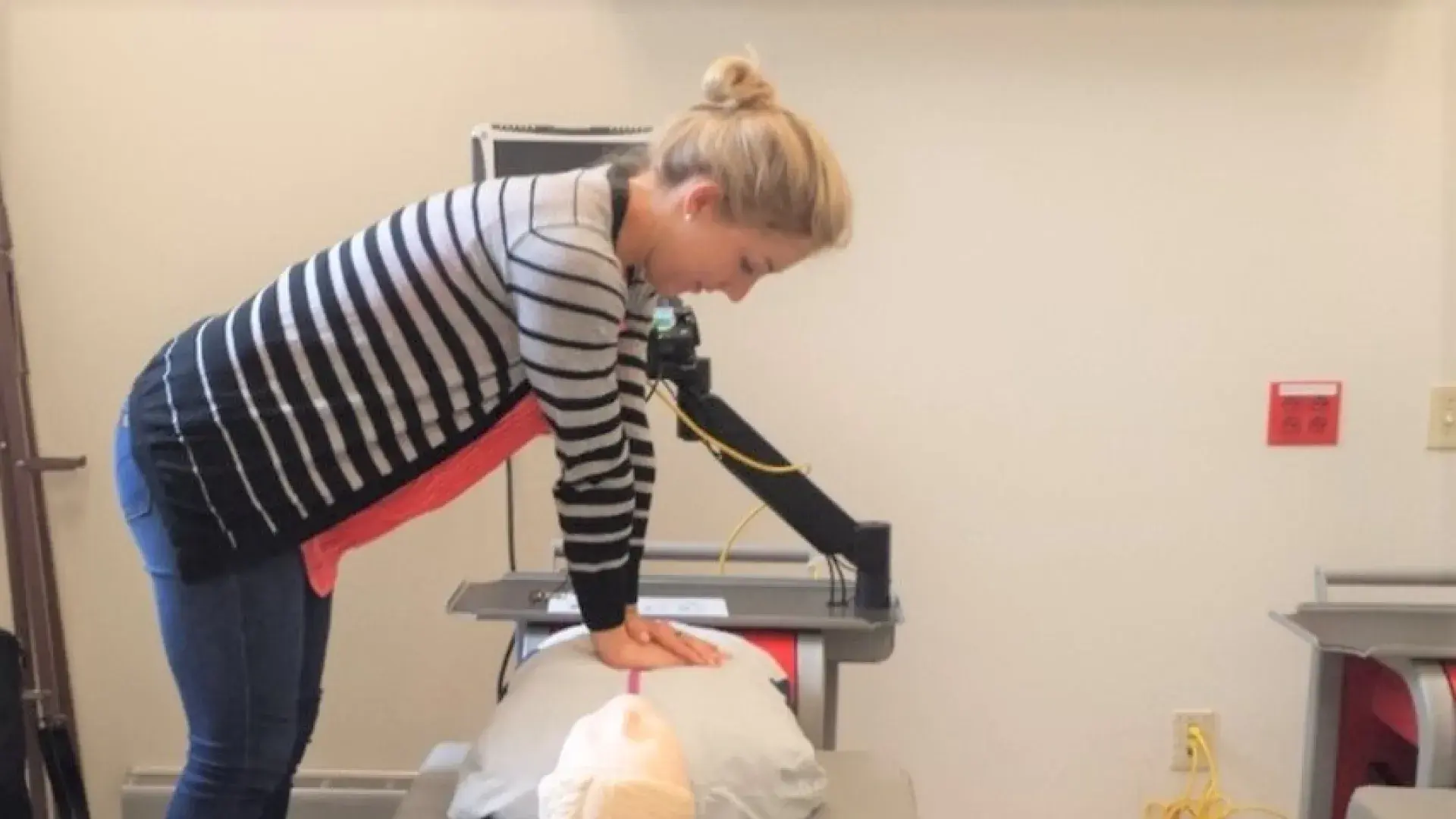
Research by Health Professions Education Associate Professor Dr. Suzie Kardong-Edgren has altered how the life-saving method is taught.
The goal of healthcare research is to improve the lives of people. For Dr. Suzie Kardong-Edgren, research she co-conducted has led to saving the lives of an estimated 20,000 people, according to the National League of Nursing.
An associate professor in the MGH Institute’s Health Professions Education program, Kardong-Edgren and Duke University School of Nursing Professor Dr. Marilyn Oermann conducted the research validating the Resuscitation Quality Improvement (RQI) system that has dramatically changed how CPR is taught to nursing students. “It’s really something to see research put into practice and have it make such an immediate impact,” said Kardong-Edgren.
RQI, which also is being used at a few hospitals, was co-developed by Laerdal Medical, a medical simulation and resuscitation training company, and the American Heart Association. Recently, the National League of Nursing and Laerdal recognized Kardong-Edgren and Oermann for their research.
“Dr. Oermann and Dr. Kardong-Edgren’s contributions in moving science and research from bench to bedside, helping create RQI is helping us prepare a diverse, culturally competent, and outstanding nursing workforce,” said Dr. Beverly Malone, President and CEO of the National League of Nursing (NLN).
According to the NLN, since RQI’s launch in 2015, more than 2,400 hospitals and 2 million nurses globally are using the digital resuscitation education programs; it is estimated that 20,000 lives have been saved.
A dozen nursing schools were also recognized by the NLN for being the first to implement the RQI system with their students. The MGH Institute’s School of Nursing is currently evaluating the most appropriate way to integrate the RQI system into its curriculum, according to Dean.
The research documented that while nursing students begin school CPR certified, most could not compress the manikin chest deeply enough to make a human heartbeat and were poorly trained in bag-valve-mask ventilation, Kardong-Edgren said. In addition, the researchers found that even a highly trained and experienced instructor could not tell with the naked eye if a person was compressing the chest well enough to make a human heart pump.
“What we’ve known for a long time is that how we teach CPR isn’t that good because we teach it too quickly; the minute you walk out the door, you probably still won't be able to do CPR correctly,” she said. “We wanted to change that.”
What Kardong-Edgren and Oermann found from several multi-site studies they conducted is that it is far more effective to have brief CPR training sessions over four consecutive days, using high-fidelity manikins that provide real-time feedback, with 10-minute refreshers every three months. The current recertification practice used by most is to take a two- to eight-hour course every two years.
Kardong-Edgren was a newly minted PhD working at the University of Texas in Arlington when she first became involved in CPR training. Her associate dean happened to also work at the American Heart Association, and she asked her to study the effectiveness of CPR. This led to four consecutive studies with Advanced Cardiovascular Life Support and CPR that tested earlier forms of the RQI.
A chance meeting between a heart association scientist and the United States Air Force led to a repurposing of an algorithm the Air Force had developed to keep fighter pilot skills fresh in the simulator, rather than flying their very expensive jets. The scientist wanted to see how repurposing the algorithm for CPR training would work. Kardong-Edgren and Oermann conducted more studies and sure enough, a new way of teaching the life-saving technique was born.
“After over 10 years of research and numerous publications on various aspects of the study, I am delighted to see the success of the RQI program and its use across nursing programs in the U. S.,” said Kardong-Edgren.
Do you have a story the Office of Strategic Communications should know about? If so, email us at ihposc [at] mghihp.edu (ihposc[at]mghihp[dot]edu).
